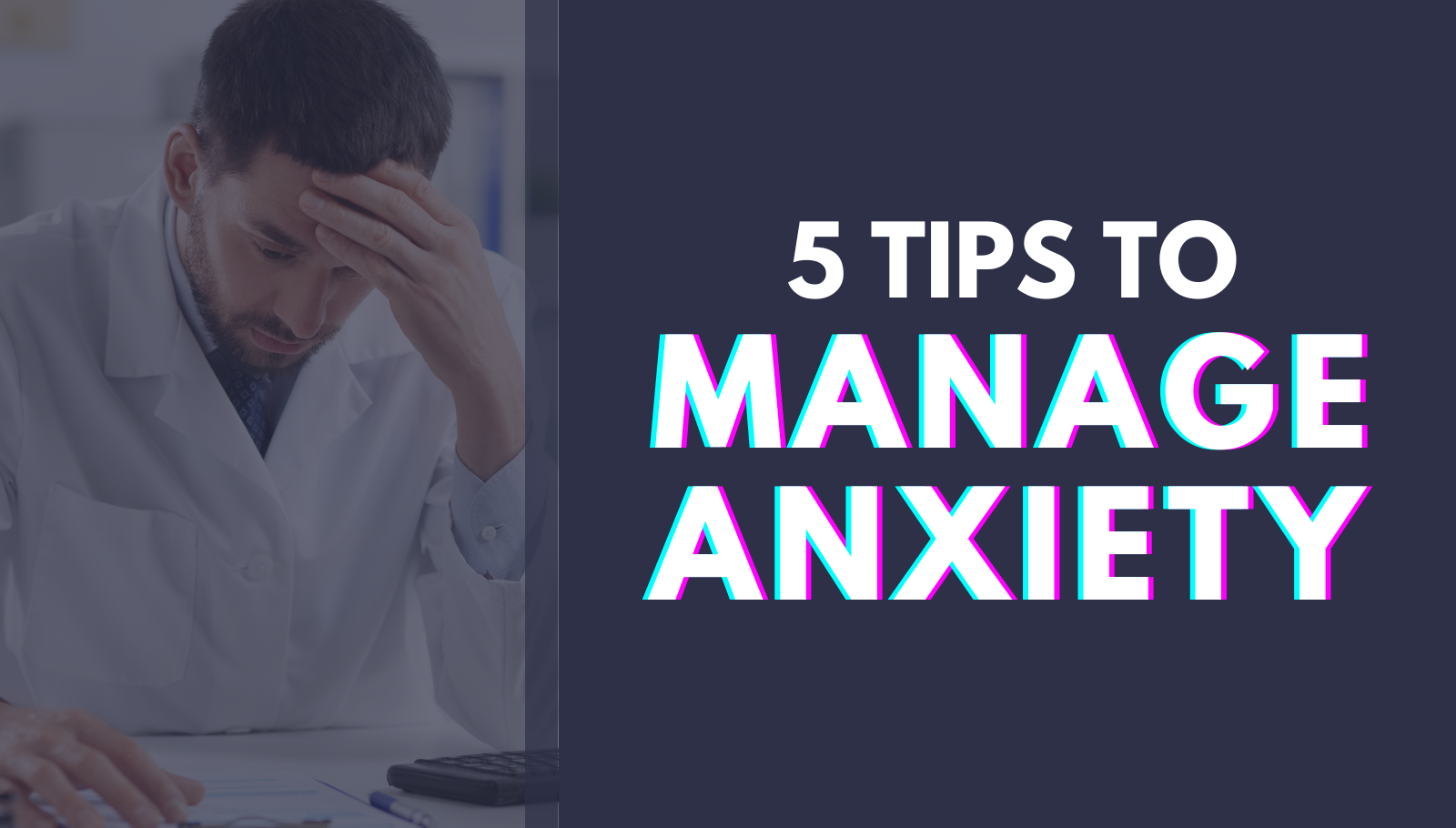
Unchecked stress can interfere with your attention span, ability to learn new information, and life in general. So if you're feeling nervous or anxious about your board exam, workload, or personal life, here are some suggestions to help you manage those negative feelings:
Be prepared
Give yourself plenty of time to get ready for that big exam. Look at your calendar days or even weeks in advance to prep for what's ahead of you. Make time to take care of personal matters so you're not out-of-touch or caught off guard. Getting those proverbial ducks in a row really can make a difference.
Write about it
Although it might seem odd to give voice to your feelings before a high-stakes event, research shows that writing about your anxiety seems to decrease the cognitive burden of stress and leads to improved performance. So grab your favorite journal and pen or pop open your laptop and get those feelings out!
Think positively
We know—this one makes you roll your eyes a bit. But thinking about personal values has been shown to alleviate underperformance on tests and other high-stress situations. Before you take on a difficult task, spend a few minutes thinking or writing about something positive that you value: your family, community, faith, or friends.
Take care of yourself
You already know this one, but we're reminding you one more time: Self-care is critical when managing stress. Be sure to do all the things you tell your patients to do—maintaining a healthy diet, exercising, and getting enough sleep are among the most important. Quitting smoking and limiting alcohol are good ideas too.
Beat imposter syndrome
Ever feel like you're not good enough, not deserving, like you're just faking it, and people are going to discover your ineptitude any minute? Yeah, that's imposter syndrome. And it runs rampant among high-achievers like physicians. But don't worry: We've got ideas on how to beat it.Procrastination
Another negative byproduct of anxiety is procrastination—anxiety and procrastination often work in a cyclical way. You avoid a task that you’re anxious about, which compounds your anxiety, and leads to further procrastination. Break the cycle by:
1. Setting attainable goals - Making progress towards these goals can help you build and keep momentum. If you need to, start with small things (like getting 3 Q&As right) and then build up to something big (like tackling the entire cardio section).
2. Putting Personal Trainer to use - Add your timeline and study goal to Personal Trainer, and let it set up a study plan for you. Then follow it to success using the most effective evidence-based learning techniques—the MedStudy Method.
3. Avoiding perfectionism - Learning is a process, and you may not grasp all of the information you need to your first time through. Embrace the process to avoid the stress of perfectionism.
4. Employing patience—especially with yourself - Don't forget that forgetting is actually a friend of learning. The more you attempt to recall information, the more likely you are to remember it. So the next time you have trouble drudging up the answer to a Q&A, have patience with yourself and look at it as an opportunity to build recall.
5. Working with a group - In addition to holding you accountable, studying with a group might make you feel less like you are the only one studying instead of enjoying yourself. Studying in groups can help lessen any resentment you might feel toward the task.
6. Remembering everything you've already accomplished - Your hard work and dedication have gotten you where you are today. Not only have you repeatedly delayed gratification enjoyed by your peers, but you have demonstrated your capacity for focused study. You can do this. You already have.


